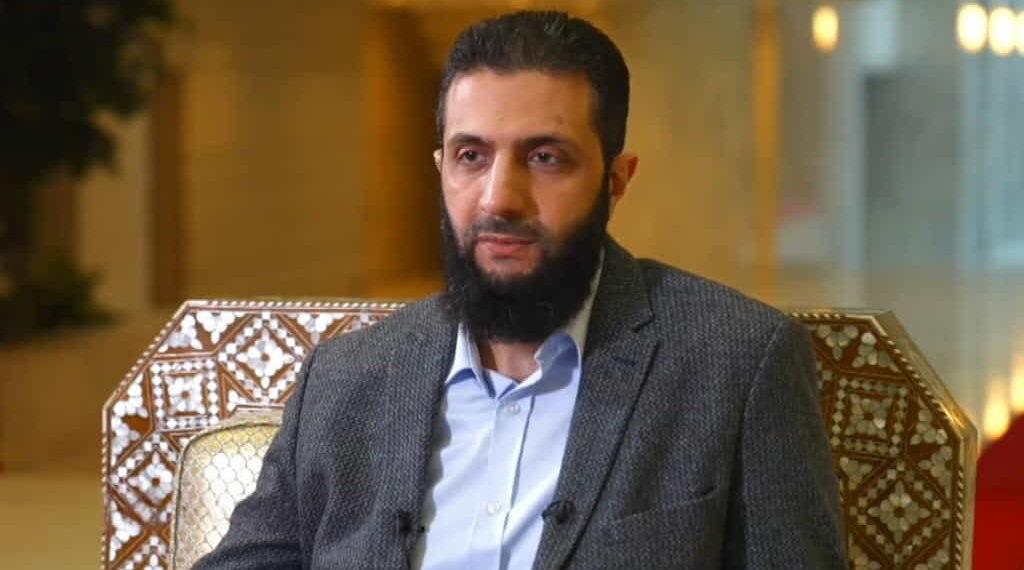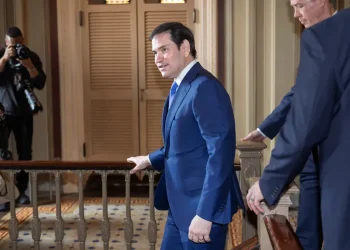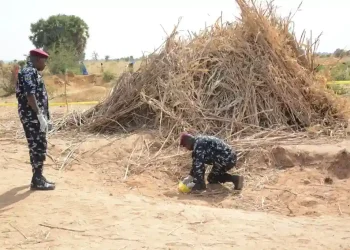Syria’s Rebel Leader, Ahmed al-Sharaa, Claims Country No Longer a Threat, Calls for Sanctions Lift
Ahmed al-Sharaa, the de facto leader of Syria and head of the rebel group Hayat Tahrir al-Sham (HTS), has stated that the country is exhausted from years of war and is no longer a threat to its neighbors or the West. In a BBC interview from Damascus, Sharaa also called for the lifting of sanctions imposed on Syria, arguing that they were meant for the old regime and that the country’s people should not continue to suffer under them.
“Syria has endured so much. Now, after everything that’s happened, these sanctions should be lifted because they were aimed at the previous regime. The victim and the oppressor should not be treated the same way,” Sharaa said.
Leading the recent successful offensive against Bashar al-Assad’s regime, Sharaa rose to prominence as the leader of HTS, a major rebel group. He was previously known by his nom de guerre, Abu Mohammed al-Jolani. Despite the group’s origins as a splinter faction of al-Qaeda, which it separated from in 2016, Sharaa argued that HTS should no longer be labeled as a terrorist organization. He insisted that HTS did not target civilians or civilian areas and viewed itself as a victim of Assad’s regime.
Sharaa dismissed concerns that Syria could end up resembling Afghanistan, a nation known for its tribal society. He emphasized the differences between the two countries, highlighting Syria’s distinct cultural and social framework. Sharaa expressed his belief in women’s education, pointing out that in Idlib, Syria’s northwestern province controlled by rebels since 2011, more than 60% of university students are women.
When asked about issues like alcohol consumption, Sharaa stated that such matters were beyond his authority and should be handled by legal experts in a future constitutional committee. He added that any future leaders or presidents would need to abide by the law.
Throughout the interview, Sharaa appeared calm and reassuring, trying to counteract perceptions that his group had not moved away from extremist ideologies. However, many Syrians remain skeptical, and the country’s future leadership will ultimately determine the kind of government Syria will have in the years to come.
The next few months will be critical in shaping Syria’s path forward, as the new rulers’ actions will reveal the true direction for the nation’s political and social future.
This article was rewritten by JournosNews.com based on verified reporting from trusted sources. The content has been independently reviewed, fact-checked, and edited for accuracy, neutrality, tone, and global readability in accordance with Google News and AdSense standards.
All opinions, quotes, or statements from contributors, experts, or sourced organizations do not necessarily reflect the views of JournosNews.com. JournosNews.com maintains full editorial independence from any external funders, sponsors, or organizations.
Stay informed with JournosNews.com — your trusted source for verified global reporting and in-depth analysis. Follow us on Google News, BlueSky, and X for real-time updates.














